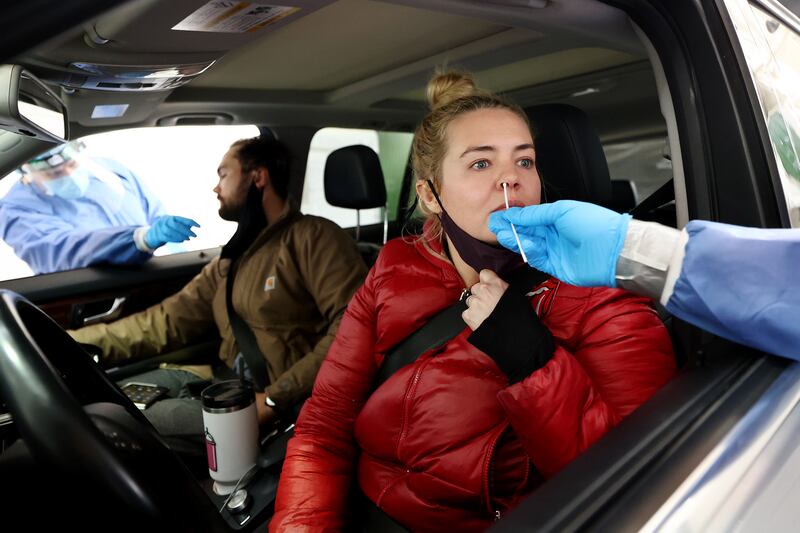A clinic at the Northwestern Memorial Hospital in Chicago has released a new study that reveals some COVID-19 survivors suffered neurological symptoms long after they first got COVID-19.
- These COVID-19 survivors did not have severe illness or require hospitalization. But they still suffered long-term neurological symptoms months later.
What does the study say?
The new study — published in the Annals of Clinical and Translational Neurology medical journal — found that 85% of the study’s 100 patients (from 21 states) had experienced four or more neurological problems months after they first got COVID-19.
- Those problems included brain fog, headaches, dizziness, tingling in the brain and muscle aches.
- The patients “were never physically sick enough from COVID-19 to need hospitalization,” according to The New York Times.
Why it matters
Dr. Igor J. Koralnik, Northwestern Medicine’s chief of neuroinfectious diseases and global neurology, told The New York Times that these patients saw the damaging symptoms come out of nowhere, which adds to the confusing results of coronavirus infection.
- “We are seeing people who are really highly, highly functional individuals, used to multitasking all the time and being on top of their game, but, all of a sudden, it’s really a struggle for them,” he said.
More evidence
Earlier this week, Virginia Sen. Tim Kaine detailed his “weird” COVID-19 symptoms he still suffers from one year after he first got infected by the coronavirus, People magazine reports.
Specifically, Kaine said he has been suffering from “weird, neurological symptoms” for the last year.
- “I have these weird, neurological symptoms one year later,” Kaine said at a hearing for the Senate Health, Education, Labor and Pensions Committee. “They’re not debilitating, they’re not painful, but they’re weird and they’re 24/7.”
What’s next?
Dr. Kathleen Bell, who works as the University Texas Southwestern Medical Center’s chairwoman of the physical medicine and rehabilitation department, told The New York Times that research needs to be done on those suffering long-term neurological issues.
- “We need to take this seriously,” she said. “We can either let people get worse and the situation gets more complicated, or we can really realize that we have a crisis.”


